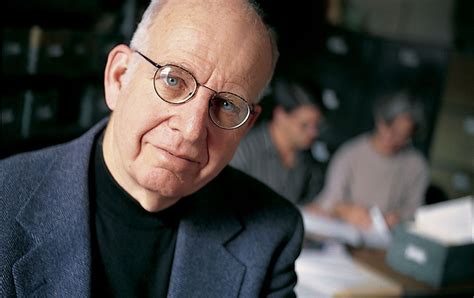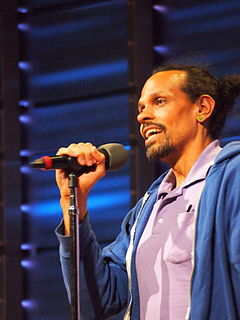A Quote by Chiwetel Ejiofor
I didn't know anything about '12 Years a Slave.' Not the book, not Solomon Northup, which I was quite shocked by, once I'd read it, that it wasn't a seminal text. I think it deserves to be.
Related Quotes
Part of what I am dealing with, with this blackness, is asking the question, "Where are those black people, who are as dark as the description of a young black boy that Solomon Northup gives in 12 Years A Slave?" He describes the young black 14-year-old boy as "blacker than any crow." You have to question if he is using that metaphorically or as a descriptive?
I am very bad at remembering the books I've read and so recently I had a wonderful experience. I decided I wanted to teach Toni Morrison's The Bluest Eye. I hadn't read it in twenty-five years. I was surprised to find how much I drew from that book. Stole from that book, learned from that book about writing. I had forgotten and there it was. Morrison has called that text faulted. I cannot see how.
Heidegger wrote a book called Was Ist Das Ding - What Is a Thing? which was kind of interesting and influential to me, as a matter of fact. It's a small paperback, which I read. It's about the nature of thingness; what is it? It's a very penetrating analysis of that, and I think a rather influential book. I know other artists who have read it and come up with it.
It's funny what [producer Richard Zanuck said about even though you can't quite place when the book or the story came into your life, and I do vaguely remember roughly five years old reading versions of Alice in Wonderland, but the thing is the characters. You always know the characters. Everyone knows the characters and they're very well-defined characters, which I always thought was fascinating. Most people who haven't read the book definitely know the characters and reference them.
[The Book of the Law]was lost for so many years. And then Josiah decided to celebrate Passover. The text says that "The Passover sacrifice had not been offered in that way ... during the days of the kings of Israel and the kings of Judah" [2 Kings 23:22]. What do you mean? Not in the days of David and Solomon? Never before? And what of the days of the prophets? What happened? That's what I'm anguishing over. If the Book of the Law could be forgotten for so many years, who knows what was done to it during those years? Maybe it was lost later, too.
The first comic I can remember ever reading was a 'Fantastic Four' issue that my dad bought out of the drugstore once. The thing that struck me about it was that the ending wasn't an ending. It was essentially a cliffhanger. It was the first time I had ever read anything like that, where you read a book, but the book isn't the book.
The inspiration is all in the script, in the text. So whatever it is, either it is a film or a book to be illustrated, anything. Everything you need to know is in the text. So the thing is trying to find right tone and voice, the right style, the right way of expressing the emotions in a story or in the location of the story, but it is all in the text.
I grew up in the Southwest Bronx. Father an accountant, mother a schoolteacher. Brother was six years older, which explains why I gobbled crystal meth at 12, smoked hashish at 13, and was shooting smack at 17, which explains how I got Hepatitis C, which was the basis of my first book, which was a humor book about dying.


































